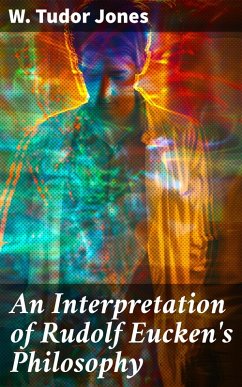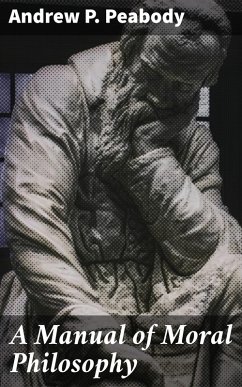
The Theories of Darwin and Their Relation to Philosophy, Religion, and Morality (eBook, ePUB)
Enriched edition. Exploring Darwin's Impact on Society and Culture
Kommentar: West, Ethan / Redaktion: Good Press / Übersetzer: Zimmermann, G. A.

PAYBACK Punkte
0 °P sammeln!
In "The Theories of Darwin and Their Relation to Philosophy, Religion, and Morality," Rudolf Schmid embarks on an intellectual journey exploring the intersecting realms of evolutionary theory and its profound implications on philosophical discourse, religious beliefs, and moral frameworks. Schmid employs a rigorous analytical style, meticulously dissecting Darwinian concepts while engaging with a broad spectrum of philosophical thought. The book situates itself within the broader context of the late 19th and early 20th centuries, a period marked by intense debates over evolution, ethics, and t...
In "The Theories of Darwin and Their Relation to Philosophy, Religion, and Morality," Rudolf Schmid embarks on an intellectual journey exploring the intersecting realms of evolutionary theory and its profound implications on philosophical discourse, religious beliefs, and moral frameworks. Schmid employs a rigorous analytical style, meticulously dissecting Darwinian concepts while engaging with a broad spectrum of philosophical thought. The book situates itself within the broader context of the late 19th and early 20th centuries, a period marked by intense debates over evolution, ethics, and the human condition, thereby inviting readers to reflect on the ongoing relevance of these themes in contemporary society. Rudolf Schmid's academic background in philosophy and biology provides a robust foundation for his exploration of Darwin's theories. His unique perspective is likely shaped by his own experiences within the intersections of science and spirituality, as he seeks to reconcile the scientific and the metaphysical. Schmid's previous works reflect a deep engagement with both Darwinian theory and the moral implications it elicits, positioning him as a pivotal voice in the discourse surrounding evolution and its broader societal impacts. This book is highly recommended for scholars, philosophers, and anyone interested in understanding how Darwin's ideas resonate through philosophical and religious lenses. Schmid's deep dive into these crucial discussions encourages critical thought, prompting readers to reconsider the evolution of their own beliefs in relation to the shifting paradigms of morality and existence. In this enriched edition, we have carefully created added value for your reading experience: - Hand-picked Memorable Quotes shine a spotlight on moments of literary brilliance. - Interactive footnotes clarify unusual references, historical allusions, and archaic phrases for an effortless, more informed read.
Dieser Download kann aus rechtlichen Gründen nur mit Rechnungsadresse in A, B, BG, CY, CZ, D, DK, EW, E, FIN, F, GR, H, IRL, I, LT, L, LR, M, NL, PL, P, R, S, SLO, SK ausgeliefert werden.













